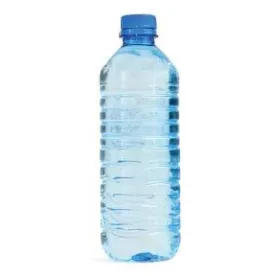The California State Legislature’s 2019 legislative session concluded this month without a final vote on the session’s highest-profile recycling legislation: the Circular Economy and Pollution Reduction Act (AB 1080/SB 54). The legislation, if passed, would have required a dramatic reduction in the waste generated from single-use packaging and certain priority single-use products. However, California lawmakers were able to pass several other targeted pieces of legislation aimed at addressing single-use plastics and the recycling market in California, including AB 792 and AB 1583. AB 792 and AB 1583 were sent to California Governor Gavin Newsom and are currently awaiting his signature.
AB 1080/SB 54
As discussed in previous alerts published by Beveridge & Diamond, AB 1080 and SB 54 – companion bills dubbed the Circular Economy and Pollution Reduction Act – would have required that manufacturers and retailers selling into the state single-use packaging and certain single-use products take steps to significantly reduce the waste generated from such items. The bill would have required manufacturers of these items to demonstrate a recycling rate of 20% by January 1, 2022, increasing to 75% by January 1, 2030. The bill would have also required that these items be recyclable or compostable by January 1, 2030.
The bills, in their current form, would apply to:
-
"Single-use packaging”, defined as “the packaging of a product when the packaging is routinely recycled, disposed of, or discarded after its contents have been used or unpackaged, and typically not refilled by the producer”, including primary or sales packaging, secondary or grouped packaging, and tertiary or transport packaging.
-
"Priority single-use products”, defined as single-use food service ware, including plates, bowls, cups, utensils, stirrers, and straws.
California considered this legislation at a time when many other states, as well as the federal government and other countries, have considered similar measures. Related measures regarding single-use packaging and certain plastics products were recently debated in Connecticut, Massachusetts, Rhode Island, Hawaii, and the State of Washington. Federal legislators are expected to introduce legislation this fall that would require manufacturers to manage and finance end-of-life recycling programs for product packaging, as well as imposing other restrictions and obligations related to packaging and single-use plastic products.
Across the Atlantic, the European Union has already adopted a single-use plastics directive that includes requirements for extended producer responsibility, labeling, recycled content, separate collection for bottles, and a ban on certain styrofoam products. Together, those requirements cover a variety of single-use plastics, including food containers, packets, and wrappers; drink containers, cups, and lids; tobacco products with filters; wet wipes; and, lightweight plastic bags, among others.
The sponsors of AB 1080 and SB 54 are expected to revive the proposed legislation during next year’s legislative session, which begins on January 6, 2020.
AB 792 and AB 1583
AB 792, if signed into law by Governor Newsom, will require plastic beverage containers to contain a specified minimum amount of post-consumer recyclable plastics beginning on January 1, 2021. Specifically, AB 792 would require plastic beverage containers sold in California to contain, on average, at least 10% post-consumer recycled plastic content beginning on January 1, 2021, and at least 25% beginning on January 1, 2025. By January 1, 2030, plastic beverage containers sold in the state must contain a minimum of 50% post-consumer recycled plastic. The recyclable content amounts that were ultimately passed in AB 792 are somewhat modest, compared to an earlier version of the bill which would have required 100% recycled content by 2035.
Beverage container manufacturers that do not meet the minimum recyclable content requirements established by AB 792 may be subject to civil penalties imposed by CalRecycle. Such penalties are to be calculated based upon the amount, in pounds, of plastic bottles that do not meet the minimum content requirements.
The bill, notably, provides CalRecycle with some amount of flexibility in adjusting the minimum content requirements set by the Legislature if deemed necessary due to market conditions or certain other specified criteria. AB 792 directs CalRecycle to consider whether the bill’s minimum content requirements should be waived or reduced at least annually, or by petition of an association representing the regulated industry no more than semi-annually. In making this determination, CalRecycle is required to consider all of the following factors:
-
Recycling rates.
-
Change in market conditions.
-
The availability of recycled plastics suitable to meet the minimum recyclable content requirements.
-
The capacity of recycling or processing infrastructure.
-
The progress made by beverage manufacturers in achieving the bill’s goals.
The bill also provides CalRecycle with the discretion to waive, reduce or grant an extension from the assessment of annual civil penalties for beverage manufacturers that have “demonstrated progress towards”, but failed to meet, the applicable minimum recyclable content requirements. In making this determination, CalRecycle is required to consider the following factors:
-
Anomalous market conditions.
-
Disruption in, or lack of supply of, recycled plastics.
-
Other factors preventing a beverage manufacturer from meeting the minimum content requirements.
AB 1583 was also passed by the California Legislature at the end of this year’s legislative session. If signed into law by Governor Newsom, AB 1583 will establish the California Recycling Market Development Act. AB 1583 is intended to promote and expand the recycling markets in California in several ways including:
-
Reauthorizing two key state recycling market development programs which otherwise would have expired on January 1, 2021: the Recycling Market Development Zone Program and the California Alternative Energy and Advanced Transportation Financing Authority’s (CAEATFA) Advanced Manufacturing Program.
-
Directing CalRecycle to convene a Statewide Commission on Recycling Markets and Curbside Recycling comprised of public and private sector entities by July 1, 2020, to, among other things, develop policy recommendations for achieving specified recycling market development and waste reduction goals.
The bill would also amend the labeling requirements for rigid plastic bottles and containers in the state’s existing law by removing the requirement to include “chasing arrows” symbol on all plastic products, which currently must be included regardless of a plastic product’s recyclability. Under the amended law, plastic bottles and containers would still be required to be coded to indicate the type of resin material used (e.g., the number “1” placed inside a triangle with the letters “PETE” for products consisting of polyethylene terephthalate).
AB 792 and AB 1583 are both currently pending on the Governor’s desk.
The outcomes from this year’s legislative session suggest that the California State Legislature is serious about addressing the growing problems associated with plastic pollution; however, as it currently stands there does not seem to be a clear consensus on how a transformative circular economy initiative in the state should look. As such, this year’s session yielded a few incremental measures, but no comprehensive solution. Nonetheless, these issues will be revisited anew in 2020, when AB 1080 and SB 54 will have another opportunity to become law.





 />i
/>i

